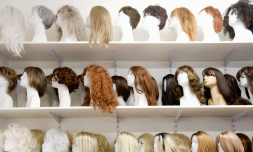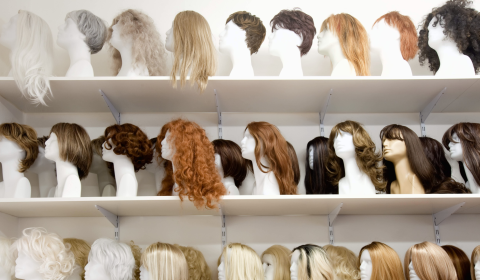Debates around the economics of weight have gone on for decades. But with a return to uber-slim beauty standards and a rise in viral weight-loss medications, the idea that being thin can make you more successful has gained new traction.
The ostensible ‘ideal’ of thinness has permeated Western society for centuries. When appearances seemingly dictate opportunities, it is disheartening to witness the profound impact of beauty standards on women’s socio-economic mobility.
But while many beauty myths are called out for being just that, it turns out one may have some truth to it; the narrative that economic success directly correlates with a slender physique.
The economist recently investigated the correlation between thinness and wealth – particularly for women – and the findings are rather striking.
‘The Economics of Thinness’ sheds light on the alarming correlation between body weight and financial prosperity. The study highlights that thinner women, on average, earn more than their heavier counterparts.
Our beauty standards have been systematically shaped by media, fashion, and the beauty industry, presenting us with an unattainable and damaging archetype of femininity.
Consequently, women who do not fit into the “thin ideal” may face barriers in their professional lives due to implicit bias and discrimination.
The concept of beauty as a determinant of success undermines the very essence of gender equality. Instead of valuing women for their intellect, skills, and qualifications, society judges them based on their physical appearance.
This regressive outlook reinforces the notion that women’s value lies solely in their looks, perpetuating a culture that devalues their contributions and perpetuates the gender wage gap.
It is vital we recognize that the idea of thinness as a prerequisite for success is not a natural phenomenon. It is a socially constructed notion fuelled by industries that profit from insecurities and self-doubt.
From weight loss products to cosmetic surgeries, these businesses capitalize on women’s desire to conform to unrealistic beauty standards, trapping them in an endless cycle of chasing unattainable perfection.
The ramifications of this obsession with thinness extend beyond economic implications. It takes a toll on women’s mental health, leading to body dysmorphia, eating disorders, and a pervasive sense of inadequacy.
The body positivity movement has gained momentum as a response to unrealistic beauty standards, aiming to promote self-acceptance and love for all body types. While this movement has had a positive impact on body image and self-esteem, it hasn’t fully dismantled the societal structures that tie physical appearance to economic success.
The popularity of weight loss drugs like Ozempic has surged in recent years, driven by the promise of quick and effective weight loss. While such medications indeed help some individuals combat obesity and improve their overall health, the narrative surrounding them has a more profound impact on women’s earning potential.
For years, studies have shown that women who conform to conventional beauty standards, which often include being thin, are more likely to receive favourable treatment in the workplace and earn higher salaries than their counterparts who do not fit these expectations.
Beyond the influence of weight loss drugs and beauty standards, the gender wage gap is perpetuated by deep-rooted gender bias and occupational segregation. Women are often steered into certain industries or job roles, which are historically undervalued and pay less.
While these biases are multifactorial, studies suggest that women’s appearance, including weight, can exacerbate existing inequalities and contribute to their professional underrepresentation in higher-paying fields.




















